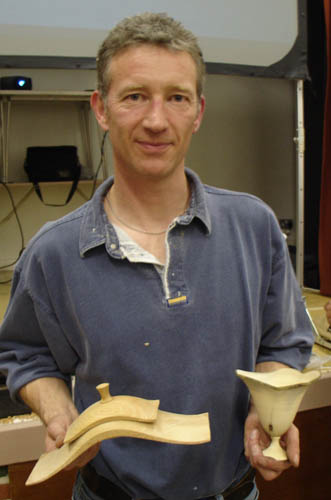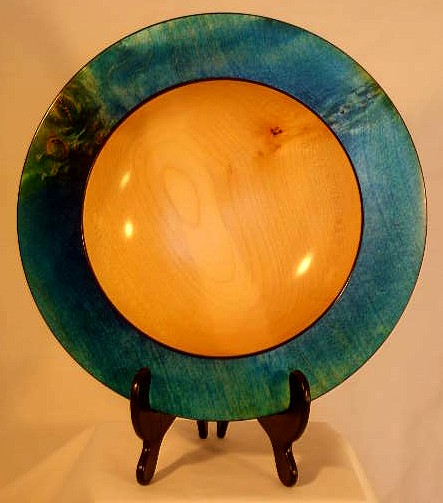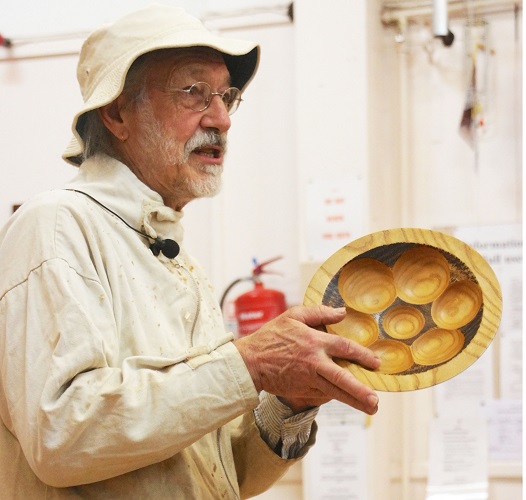
Jimmy is not your ordinary woodturner. Upon a first meeting one would think of him as a renegade, a free thinker and not within the stereotypical image of a woodturner. His charming British style, unending wit, creative mind and magnetic personality are only some of the attributes that make him popular in the woodturning demonstration circuit.
Jimmy is on the Register of Professional Woodturners in the United Kingdom and a member of the American Association of Woodturners. He has over 22 years of experience in woodturning and woodworking. The demand for his services as a freelance demonstrator and teacher takes him all over the world including his homeland of the United Kingdom, Europe, Canada, Norway, Finland, New Zealand, Belgium, Australia.
 Alan Thomas
Alan Thomas

